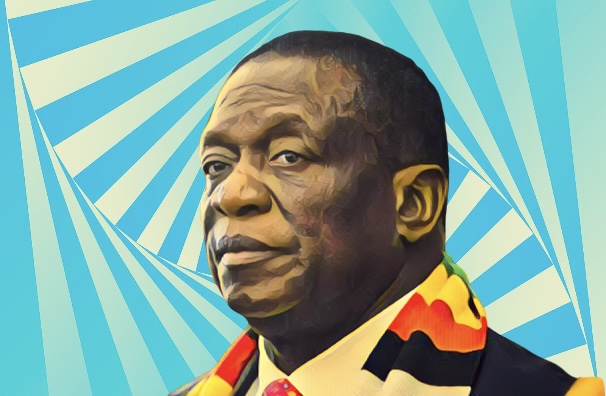Children often emulate their parents. This is why there’s a saying, “An apple doesn’t fall far from the tree.” When parents are kind, their children tend to be kind. Conversely, if parents are cruel, their children may follow suit. This principle applies on a national level too. Leaders’ actions are often mimicked by the younger generation, who look up to them.
Last week, during the official opening of the Child Parliament, a troubling scene unfolded. Child President Pious Nleya, “inspected” a children’s “guard of honor” surrounded by bodyguards. As he addressed the gathering, a uniformed aide-de-camp stood behind him. Nleya even wore a scarf similar to President Emmerson Mnangagwa’s signature one. This portrayal was shocking and disappointing.
Does this boy idolize Mnangagwa? If so, Zimbabwe is in serious trouble. If we don’t stop this indoctrination, we may be nurturing a future dictator with a propensity to loot national resources. This performance, though staged, symbolized a worrying trend.
Zimbabwean leaders are not genuinely loved by the people. Their hold on power isn’t through democratic means but through brutal repression. Many Zimbabweans lie in graves for exercising their right to choose a different leader. Zimbabwe National Army Commander Lieutenant-General Anselem Sanyatwe recently declared that Zanu PF would rule “until donkeys grow horns,” using coercion to force votes for Zanu PF.
While Mnangagwa boasts of fighting for Zimbabwe’s independence, the country has been handed over to the Chinese. They plunder precious minerals, displace local communities, and treat employees like slaves. Working conditions are worse than during colonial times, a fact our parents who worked then can attest to.
Young Zimbabweans should question where the wealth from our 60 minerals goes. Why are we swimming in poverty? Most leading lavish lives are in power or aligned with those in power. Millions of ordinary citizens struggle daily. The main reason for this is the administration’s pillaging of national resources, not so-called “sanctions.”
Young people should know about figures like Wicknell Chivayo, Moses Mpofu, and Mike Chimombe. These names are linked to the government’s ruinous economic policies. This is why many youths face futures in vending, criminality, and drug abuse. Decades ago, Zimbabwe had booming industries. Today, these have disappeared, replaced by thickets of bush where railway lines once ran.
Speaking of drugs, why aren’t drug lords arrested? There’s a scheme to keep the youth hooked on drugs, preventing them from rising against a regime that has stolen their future. Meanwhile, drug lords connected to power make substantial money.
Why would any young person aspire to be another Mnangagwa? Who would believe that running down a country and causing misery is admirable? Once vibrant towns and cities now go for months without water. At independence, this basic right was accessible to all urban dwellers.
Young Zimbabweans must remember that the Water Act [Chapter 20:24] mandates the state to provide water for all. Why admire someone who has neglected rural areas, leaving them undeveloped for over 44 years? Has the Child Parliament considered how many rural schools lack electricity, the internet, and modern equipment?
Furthermore, how many rural homes are connected to the national power grid or have piped water? Do these youths understand why there are so few healthcare facilities, forcing many to walk over 20km to the nearest clinic? These facilities often lack basic medications, except those provided by donors.
If young people researched and thought critically, they would see that the person they idolize causes many of these problems. Zimbabwe needs a generation that wants to do things differently. We need youths who aspire to see a high standard of living for all, who respect life and human rights, and who believe in honest, hard work.
This can’t be achieved by emulating the wrong person, especially someone responsible for the misery engulfing millions. Let’s raise a generation of leaders who prioritize the well-being of their people and strive for a better Zimbabwe.
Source: Newsday


